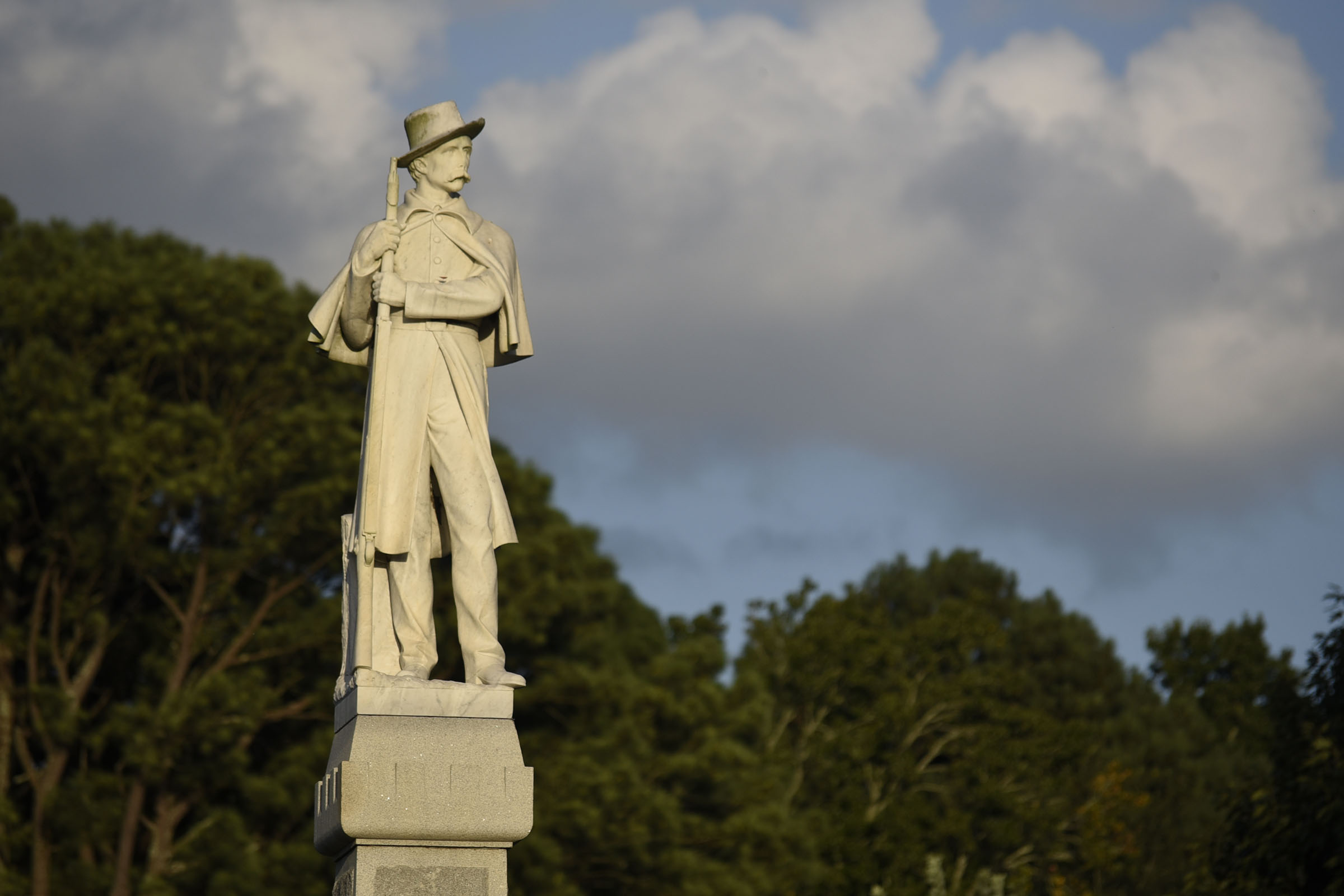 Staff Photo by Robin Rudd A monument to the Confederate Soldiers of Walker County, Georgia stands in front of the Historic Chattooga Academy in LaFayette on August 17, 2017. The monument was erected by the United Daughters of the Confederacy in 1909. Chattooga Academy served as Confederate Gen. Braxton Bragg's headquarters from September 10-17, 1863.
Staff Photo by Robin Rudd A monument to the Confederate Soldiers of Walker County, Georgia stands in front of the Historic Chattooga Academy in LaFayette on August 17, 2017. The monument was erected by the United Daughters of the Confederacy in 1909. Chattooga Academy served as Confederate Gen. Braxton Bragg's headquarters from September 10-17, 1863.Over the continued objections of Democrats, state Sen. Jeff Mullis' monuments protection bill passed out of the House Governmental Affairs Committee on Wednesday afternoon.
The bill allows owners of monuments to sue for up to three times the cost of the damage if someone vandalizes their structures. The bill applies to a slew of monuments, including those honoring military, cultural, religious or political figures.
But Democrats argue the bill is a step backwards in their push to remove some Confederate monuments. The bill explicitly prohibits the government from moving these statues into museums, something civil rights advocates have proposed as a compromise.
The NAACP DeKalb County Branch president has objected to Mullis' bill in part because community leaders in Decatur have pushed to remove an obelisk from its city square. The obelisk honors the Confederate troops as a "covenant keeping race."
"There really is a serious policy consideration that is totally inconsistent with any respect for local control," said state Rep. Mary Margaret Oliver, D-Decatur. "The state of Georgia tells the city of Decatur what to do with its obelisk."
Oliver attempted to add an amendment to the bill to allow local governments to have control over the monuments in their communities, but Chairman Ed Rynders shot down her request. He said she did not formally submit the amendment at least two hours before Wednesday's meeting, as Rynders requires.
Counties and cities used to have control of monuments. But the state took over as part of a law in 2002, which coincided with the change of the state flag. State Sen. Elena Parent, D-Atlanta, introduced a bill to give control back to local governments this year, but her bill did not make it out of committee. She tried to tack her bill on as an amendment to Mullis' bill on the Senate floor last week, but Republicans voted her proposal down.
Stuck in a lengthy floor debate over a bill to provide new electronic voting machines, Mullis was not at the committee hearing Wednesday. State Sen. Matt Brass, R-Newnan, presented the legislation on Mullis' behalf. Republican members of the committee did the heavy lifting in defense of the legislation.
"This puts some teeth into legislation that would allow those folks in local government or maybe a private individual to go after people for monetary damages," said Rep. J. Collins, R-Villa Rica.
Mullis, R-Chickamauga, has previously said he wrote the bill because some vandals broke tombstones, stole one flag and tore up another at a Ringgold cemetery last year. In Chickamauga in 2007, some vandals also broke an obelisk in honor of James Gordon, the city's first white settler who oversaw a plantation and mill.
State Rep. Renitta Shannon, D-Decatur, objected to Mullis' bill during Wednesday's hearing. Shannon introduced a bill this year to ban all Confederate monuments on public property, with the exception of museums and Civil War battlefields. Her legislation did not make it out of the Governmental Affairs Committee.
Shannon particularly protested the language in Mullis' bill about moving monuments. His legislation says that if a government were to move a monument, it must go into another place that is just as prominent in the community. Mullis added these lines in the event that workers needed to move a statue during construction.
"Some of these cities don't have places that you could say, 'It's just as prominent, just as visible,'" Shannon said. "What are they supposed to do? Some of these cities are so small."
Brass pushed back, telling Shannon, "Decatur is not small. There's plenty of room to move it to a similar spot in Decatur. Those towns that are much smaller than Decatur, they've got room as well."
When the bill passed Wednesday, Rynders did not take a roll call vote. The legislation will now go to the House Rules Committee before hitting the chamber floor. If approved by the House without an amendment, the bill would go to Gov. Brian Kemp's desk.
Contact staff writer Tyler Jett at 423-757-6476 or tjett@timesfreepress.com. Follow him on Twitter @LetsJett.
